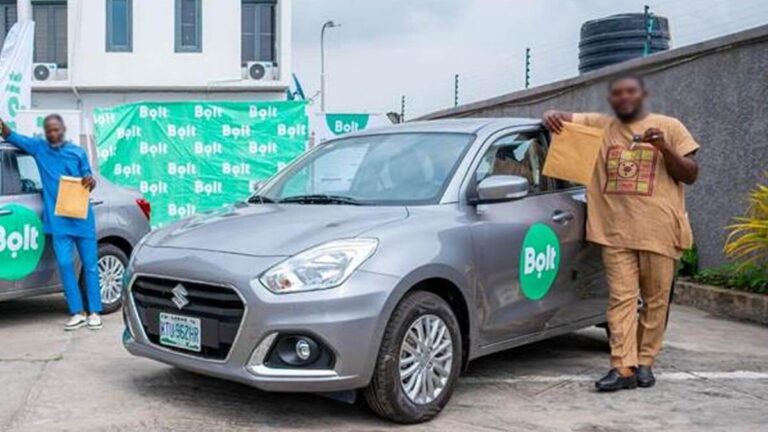Imagine hitting the road in Lagos, weaving through bustling traffic, and earning up to ₦1.6 million a month as a ride-hailing driver. For Nigeria’s top drivers on Bolt and inDrive, this is reality in 2025, as revealed by a recent report from TechCabal. For the first time, these leading ride-hailing platforms have shared earnings data, showcasing the earning potential in Nigeria’s booming ride-hailing market, projected to hit $380 million by 2028. But behind the impressive figures lie challenges like rising fuel costs and high commissions, sparking debates about fairness in the gig economy. Here’s a deep dive into what drivers are earning, the hurdles they face, and what’s next for Nigeria’s ride-hailing scene, brought to you by Carpulse.ng, your trusted source for mobility and automotive insights.
In the first half of 2025, Bolt’s top 50 drivers in Nigeria earned an average of ₦9.6 million ($6,300), or about ₦1.6 million ($1,050) monthly. These earnings include gross trip revenue plus bonuses for high ratings, frequent trips, and high ride volumes. Bolt credits its driver support programs—like fuel subsidies, flexible hours, and enhanced safety features—for these numbers. Meanwhile, inDrive’s top 50 drivers averaged ₦7.6 million ($4,996) over the same period, roughly ₦1.2 million ($787) per month—26% less than Bolt but up 39.65% from last year, according to inDrive’s Oladimeji Timothy. In a country where less than 1% of workers earn ₦1 million ($656) monthly, these figures highlight the gig economy’s transformative potential, driven by Nigeria’s urbanization, smartphone growth, and strained public transport.
But it’s not all smooth rides. Drivers face soaring fuel costs—up to ₦180,000 weekly—and platform commissions that shrink their take-home pay. For instance, a Bolt driver earning ₦1,066,431 in June 2025 might lose ₦138,016.97 to commissions and ₦20,173 to booking fees, leaving about ₦908,240 before fuel and maintenance costs. The Amalgamated Union of App-Based Transporters of Nigeria (AUATON) has called out platforms for fare cuts and pricing strategies that hurt drivers, leading to a Lagos strike in May 2025 demanding 5% commission caps and better conditions. Some drivers even threatened to switch to local apps like SimpliRide, launched in 2025 with a flat commission model.
Regulatory scrutiny is heating up too. In June 2025, the Lagos State House of Assembly summoned Bolt, inDrive, Uber, and Rida to address labor practice concerns, aiming to audit driver contracts and ensure fair treatment. To stay competitive, Bolt has rolled out fuel subsidies, rewards, and lower commissions for top performers, while briefly testing a fare-negotiation feature in 2024, inspired by inDrive’s model, before scrapping it. inDrive, with its 10% commission and fare-negotiation system, continues to attract price-conscious drivers and riders, boosting efficiency with AI-driven route optimization and 85% faster customer service resolutions in 2025.
The ride-hailing boom shows no signs of slowing, but platforms must balance rider affordability with driver profitability amid rising costs and regulatory pressure. For now, top drivers are cashing in, proving that with grit and strategy, ride-hailing can be a lucrative gig in Nigeria.
Have 1 million naira and above to Buy or Sell Cars In Nigeria? Check carlots.ng
All rights reserved. Reproduction, publication, broadcasting, rewriting, or redistribution of this material and other digital content on CarPulse.ng is strictly prohibited without prior express written permission from CarPulse Nigeria - Contact: [email protected]
